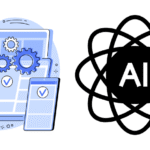 Hybrid Development Best Practices – Master the art of hybrid development with these best practices. Focus on code reusability, seamless integration, and responsive design to build robust, scalable, and user-friendly applications.
Hybrid Development Best Practices – Master the art of hybrid development with these best practices. Focus on code reusability, seamless integration, and responsive design to build robust, scalable, and user-friendly applications.
However, building an effective hybrid development team requires following certain best practices to ensure that projects are completed on time, within budget, and to the highest quality standards.
Key Takeaways:
- Hybrid development offers businesses flexibility, the ability to leverage multiple technologies, and cost-effectiveness.
- Building an effective hybrid development team means hiring skilled cross-platform developers and creating a collaborative work environment.
- Clear communication channels, agile development methodologies, and high code quality and documentation are essential for hybrid development success.
The Value of Hybrid Development
Hybrid development is an invaluable approach for businesses looking to build highly functional and efficient mobile applications. It enables developers to leverage multiple technologies to create apps that can be used across different platforms and devices, making it an increasingly popular choice.
One of the main benefits of hybrid development is its flexibility. These types of apps can be easily updated and upgraded, allowing them to remain relevant and useful to end-users. Moreover, hybrid development is highly cost-effective, as it requires fewer resources than other forms of development, such as native app development.
The Benefits of Hybrid App Development Tips
Another advantage of hybrid development is the ability to provide users with the same level of performance and functionality as native apps. With the right hybrid app development tips, businesses can create apps that offer a seamless user experience, regardless of the platform or device used. This makes hybrid development an ideal option for businesses that want to build apps without compromising on quality or performance.
Building an Effective Hybrid Development Team
Building a successful hybrid development team involves hiring skilled cross-platform developers and creating a collaborative work environment. An effective team requires members with diverse skill sets to handle multiple technologies and platforms. Here are some best practices for building an efficient and productive hybrid development team.
Hire Skilled Cross-Platform Developers
The success of a hybrid development team depends on the skills of its members. When hiring developers, look for those with experience in multiple platforms such as iOS, Android, and web technologies. Cross-functional skills are essential for hybrid development since it requires building apps that can work seamlessly across different platforms.
Also, consider developers who have experience with both native and hybrid app development. Native app development requires a specific set of skills, so hiring developers with a solid background in this area can enhance the team’s capabilities.
Encourage a Collaborative Environment
Collaboration is critical to the success of any hybrid development team. Ensure that the team members work together, share their ideas, and communicate effectively. Encouraging collaboration can be achieved by creating open channels of communication, conducting regular meetings, and sharing knowledge through training sessions and workshops.
Moreover, building a culture of teamwork and mutual respect can enhance productivity and creativity. Team members should support each other and be willing to learn from one another.
Create a Well-Rounded Team with Diverse Skill Sets
Hybrid app development requires expertise in multiple areas, such as design, front-end and back-end development, and database management. It’s crucial to assemble a well-rounded team with diverse skill sets to handle all aspects of the app development process.
A team that includes UI/UX designers, front-end and back-end developers, quality assurance engineers, and project managers with experience in hybrid development can streamline the development process and ensure that the app meets all requirements.
The success of a hybrid development team depends on hiring skilled cross-platform developers, creating an environment that encourages collaboration, and assembling a well-rounded team with diverse skill sets. Implementing these best practices can lead to greater efficiency and productivity in hybrid app development.
Establishing Clear Communication Channels

Effective communication is crucial for the success of any hybrid development team. Without clear channels of communication, team members may work on conflicting goals, leading to delays, confusion, and frustration. Here are some best practices for establishing clear communication:
Project Management Tools
Modern project management tools can simplify communication and streamline workflows for hybrid development teams. Platforms like Jira, Trello, and Asana allow team members to track tasks, allocate resources, and collaborate on project deliverables in real-time. Using these tools, hybrid development teams can ensure everyone is on the same page and working towards common goals.
Regular Meetings
To maintain effective communication, hybrid development teams should hold regular meetings. These meetings can be daily stand-ups, weekly progress reports, or monthly retrospectives. During these meetings, team members can discuss their progress, raise concerns, and share feedback. Regular meetings help create a collaborative and productive work environment, ensuring that everyone is aligned towards the project’s goals.
Open Channels of Communication
Open communication channels are central to effective collaboration. Hybrid development teams should use various communication platforms like Slack, email, or video conferencing to stay connected and informed. Having an open-door policy can also help team members raise concerns or share their ideas without fear of judgment or retribution.
Establishing clear communication channels is key to building a successful hybrid development team. By using project management tools, holding regular meetings, and having open channels of communication, hybrid development teams can enhance communication and ensure everyone is working towards the same goals.
Agile Development Methodologies
Implementing agile development methodologies is crucial for the success of hybrid development teams. Agile frameworks like Scrum or Kanban enable teams to break down large projects into manageable tasks, establish clear priorities and deadlines, and foster a culture of continuous improvement.
By following an agile approach, hybrid development teams can improve productivity, reduce time-to-market, and ensure a high level of customer satisfaction. Additionally, agile frameworks help teams adapt to changes in project requirements and respond to feedback in a timely manner.
One of the key benefits of agile development is the ability to enable rapid iteration. In hybrid development, this means that teams can quickly test and refine applications across multiple platforms, making necessary changes on the spot. As a result, hybrid development teams can release new features and updates more frequently and with greater accuracy.
To implement agile development, hybrid development teams must establish clear roles and responsibilities, foster effective communication, and regularly reflect on their performance. By embracing an agile mindset, hybrid development teams can deliver high-quality products that meet customer needs and expectations.
Code Quality and Documentation

One of the most critical considerations for effective hybrid development is ensuring that the code is of high quality and well-documented. Effective coding practices and comprehensive documentation are essential for maintaining and updating hybrid applications over time.
Developers should adhere to established coding standards and best practices, which can help maintain consistency and minimize errors in the code. Code reviews by peers or lead developers can help identify potential issues early on and ensure that code is optimized for performance and security.
Automated testing is another crucial element of maintaining high code quality. By automating testing processes, developers can identify and resolve issues quickly, enabling the team to focus on other aspects of the development process.
Comprehensive documentation is also important for hybrid development teams. Documentation provides context and guidance for developers who may need to update or modify the code in the future. It can also facilitate knowledge transfer within the team, ensuring that the application is maintainable over time.
Overall, prioritizing code quality and documentation helps ensure the stability and longevity of hybrid applications. As such, these practices should be an integral part of any effective hybrid development team’s processes and workflows.
Continuous Integration and Deployment
Implementing continuous integration and deployment practices in hybrid development teams can significantly improve efficiency and reduce errors. These practices involve automating the build, testing, and deployment processes using tools like Jenkins or GitLab.
Continuous integration involves integrating code changes into a shared repository several times a day. This ensures that code changes are thoroughly tested and merged with the main codebase frequently, reducing the likelihood of conflicts and errors. Continuous deployment, on the other hand, automates the process of deploying code changes to production, resulting in faster releases and reduced downtime.
In addition to reducing errors and speeding up release cycles, continuous integration and deployment also allow for easier rollbacks in case of issues. By automating the testing and deployment processes, teams can focus on adding value and improving the quality of the codebase.
Collaboration and Knowledge Sharing

A successful hybrid development team requires collaboration and knowledge sharing at its core. By fostering an environment of open communication, cross-functional teams can achieve their goals and grow together.
Mentorship Programs
Mentorship programs can be essential in hybrid development, especially when working with new or junior team members. Seasoned developers can share their knowledge and experience, providing guidance and support to team members. This type of program can help accelerate learning and growth and provide a structured path for professional development.
Peer Code Reviews
Peer code reviews are a crucial aspect of hybrid development. They provide an opportunity for team members to catch potential issues and ensure that code is consistent with coding standards. Peer reviews also foster a culture of constructive criticism and accountability that can improve the overall quality of code produced by the team.
Knowledge-Sharing Sessions
Regular knowledge-sharing sessions can be beneficial for hybrid development teams. These meetings allow team members to share tips, tricks, and best practices with each other and stay up to date on new technologies and trends. They also provide a forum for problem-solving and can facilitate innovation and ideation.
Security and Performance Optimization

Hybrid development teams must prioritize security and performance optimization to ensure the robustness and high performance of their hybrid applications. Effective coding strategies such as secure coding practices, encryption, and performance testing should be implemented.
Secure coding practices such as input validation, output encoding, and password protection can prevent common security threats such as SQL injection and cross-site scripting. These practices can be enforced using coding standards, automated security testing tools, and regular code reviews.
Encryption is essential to protect sensitive data from tampering and theft. Hybrid development teams must ensure that encryption is applied to all data in transit and at rest, using encryption algorithms, secure key management, and secure communication protocols.
Performance optimization is critical to ensuring that hybrid applications are fast and responsive. Hybrid development teams should use performance testing tools to identify bottlenecks, optimize resource usage, and reduce load times. Techniques such as caching, image compression, and lazy loading can also be used to improve performance.
Best Practices for Security and Performance Optimization:
- Implement secure coding practices such as input validation, output encoding, and password protection.
- Encrypt all data in transit and at rest using encryption algorithms, secure key management, and secure communication protocols.
- Use performance testing tools to identify bottlenecks and optimize resource usage.
- Employ techniques such as caching, image compression, and lazy loading to improve performance.
The Rise of Progressive Web Apps (PWAs)
PWAs are web applications that provide a native app-like experience, with features like offline functionality, push notifications, and access to device hardware. They are cost-effective, easy to maintain, and can be built using web technologies like HTML, CSS, and JavaScript. The future of hybrid development will involve a greater focus on PWAs, as they offer a seamless user experience by combining the best of both web and native app experiences.
Enhanced User Experience
As user expectations continue to rise, hybrid development teams will need to prioritize user experience (UX) to remain competitive. Advanced technologies like artificial intelligence (AI) and machine learning can be leveraged to create personalized experiences that are tailored to user preferences and behaviors. By focusing on UX, hybrid development teams can create apps that are intuitive, engaging, and impactful.
As the landscape continues to evolve, it is essential for hybrid development teams to remain agile, innovative, and adaptable.
External Resources
FAQ

Q: Why are hybrid development teams important in today’s digital landscape?
A: Hybrid development teams are essential because they enable businesses to leverage the benefits of both native and web app development. They can enhance efficiency, streamline processes, and drive innovation.
Q: What is the value of hybrid development?
A: Hybrid development offers flexibility, as it allows businesses to build applications that can be deployed across multiple platforms. It also enables the use of various technologies, and it is cost-effective compared to developing separate native apps.
Q: What are the key elements of building an effective hybrid development team?
A: An effective hybrid development team consists of skilled cross-platform developers and a collaborative work environment. Assembling a well-rounded team with diverse skill sets is also important.
Q: How important is clear communication within hybrid development teams?
A: Clear communication is crucial for smooth collaboration and effective problem-solving. Using project management tools, holding regular meetings, and maintaining open channels of communication can ensure successful outcomes.
Q: What are the benefits of implementing agile development methodologies in hybrid development teams?
A: Agile development methodologies, such as Scrum or Kanban, can improve productivity, enable rapid iteration, and foster a culture of continuous improvement within hybrid development teams.
Q: Why is code quality and documentation important in hybrid development?
A: Maintaining high code quality and comprehensive documentation ensures robust and maintainable code. Following coding standards, conducting code reviews, and performing automated testing are crucial for achieving this.
Q: What are the advantages of continuous integration and deployment in hybrid development?
A: Implementing continuous integration and deployment practices automates the build, testing, and deployment processes. This results in faster releases, reduced errors, and improved overall efficiency.
Q: How does collaboration and knowledge sharing benefit hybrid development teams?
A: Fostering a collaborative and knowledge-sharing culture within hybrid development teams encourages continuous learning and professional growth. Mentorship programs, peer code reviews, and regular knowledge-sharing sessions are beneficial in this regard.
Q: Why is security and performance optimization important in hybrid development?
A: Incorporating security and performance optimization practices ensures that hybrid applications are robust and high-performing. Secure coding practices, encryption, and performance testing are crucial aspects of this process.
William is a highly accomplished technical author specializing in cross-platform app development. With a rich background in the tech industry, he has worked at prestigious companies like Uber and Facebook, where he honed his skills as an iOS developer since 2009. Throughout his career, William has been an advocate for leveraging frameworks like React Native and Xamarin to create innovative and efficient cross-platform mobile apps.
Having pursued a degree in Computer Science and Mathematics at Caltech, William is equipped with a strong educational foundation. Currently residing in LA with his two daughters, he finds solace in exploring the scenic hills through hiking. Passionate about knowledge sharing, William not only builds cutting-edge applications but also takes pleasure in teaching students how to develop their own cross-platform mobile apps. His expertise, combined with his dedication to empowering others, makes him an invaluable asset in the field of app development.







